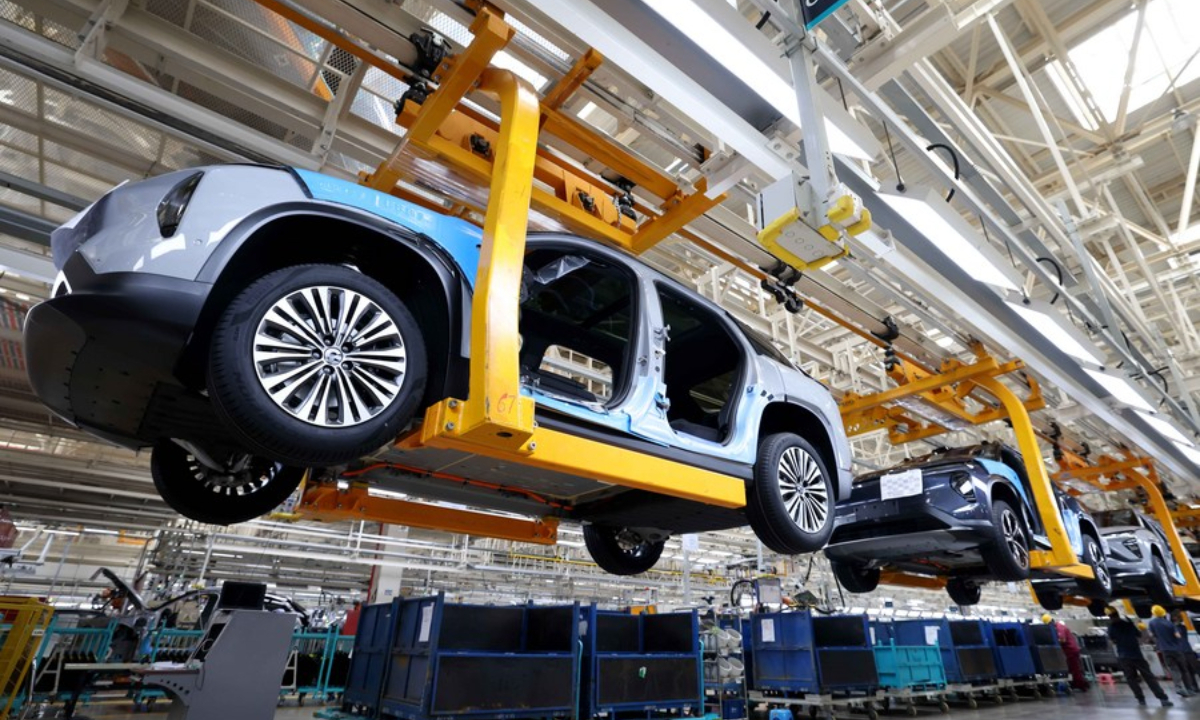
Photo taken on Aug 28, 2022, shows a complete vehicle production line at a new energy vehicle factory in Hefei, east China's Anhui Province. Photo:Xinhua
Geely Holding Group and Nio, major players in China's new energy vehicle (NEV) sector, signed comprehensive cooperation agreements on Wednesday, focusing on the battery swapping business. The collaboration could serve as a catalyst for further advancement in the entire domestic NEV industry, experts said.
The partnership is expected to boost market share growth for both companies. It will also enhance access to superior products and services for domestic consumers, observers noted, thereby catalyzing further progress in the whole NEV industry.
Li Shufu, chairman of Geely Holding Group, and Li Bin, founder of electric carmaker Nio, were present at the signing ceremony, which was held in tech hub Hangzhou, East China's Zhejiang Province on Wednesday. In light of the agreement, both sides will carry out comprehensive cooperation in various fields including developing battery-swapping standards, promoting battery-swapping technology, and swapping network construction, according to media reports.
Li Bin said at the signing ceremony that the cooperation will promote the further popularization of the battery swap model, allow more users to have a high-quality and convenient battery swap experience, and contribute to the high-quality development of the smart electric vehicle industry.
The deal will help to accelerate the standardization of battery swapping models, and jointly build a new ecosystem for battery swapping and energy replenishment, Li Shufu noted.
This agreement reflects strategic alignment and openness principles between the two industry leaders, Liang Zhenpeng, a Beijing-based industry analyst, told the Global Times on Wednesday.
The agreement came just a week after Changan Automobile and Nio signed a similar cooperation agreement on battery swapping.
Development of battery swapping is part of the nation's plan for NEVs.
Since 2020, government departments have issued a series of policies aimed at promoting the development of the NEV industry, with a particular emphasis on battery swapping. These policies seek to encourage the establishment of standards for on-board battery swap systems, the formation of universal battery swapping platforms, and the optimization of battery utilization and efficiency for NEVs.
With government support, the number of domestic battery swap stations has grown rapidly in recent years. From 2019 to 2021, the number of power swap stations in China increased from 306 to 1,406, and it is expected to reach 69,500 in 2026, according to media reports.
